
'Occupation isn't just another word'
Feelings of shame, blame and responsibility; fences and mental barriers take over the entire country; anger and hatred instead of understanding and acceptance; corruption of Israeli society. Local human rights activists answer the question: 'What did occupation do to you?'
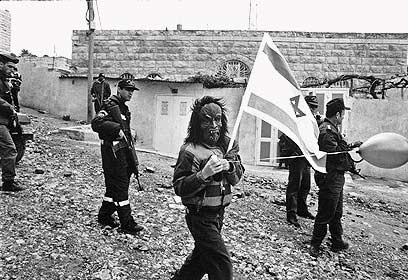
"The occupation doesn't affect me or my loved ones materialistically. But it has an emotional and moral effect on me. It makes me feel ashamed, guilty and responsible. Even though I oppose it, I'm still a part of it by belonging to the occupying side. Above all, I fear a future when I'll witness things that should have been stopped. (Roee Maor, "Yesh Din" activist. Photo: Alex Livak)
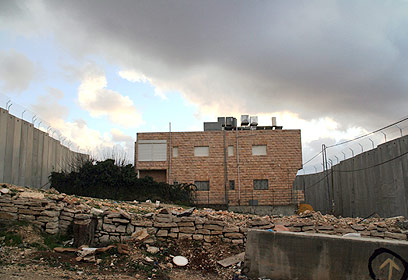
"In my job I see how the different authorities evade their civil and moral obligation to follow international laws and agreements. It happens daily on both sides of the Green Line to Israelis and Palestinians. I often see how the authorities who should enforce the law are totally unaware of it. It frightens and angers me." (Ronit Pisso, an activist for the "Association for Civil Rights in Israel." Photo: activestills.org)
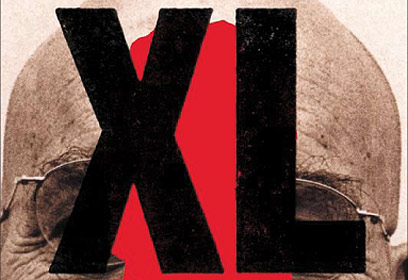
"Because of the occupation I can't travel to Gaza to see my friends. I hear from them, over the phone, about the terrible life they endure. I identify with them on the most personal level, but I am ashamed to tell them about going out to a movie or for coffee" (Maskit Bendal, activist for Physicians for Human Rights. Poster: David Tartakover)
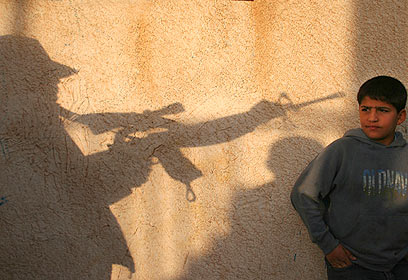
"I feel less and less a part of this place and this country. The evil slope is so steep and slippery that I no longer believe protest can be heard. It's clear to me today that 40 years of occupation have completely corrupted the society. It's not about to end, it only secures us a place on the side of the evil ones and seeps into everything." (Alona Cohen, human rights activists. Photo: activestills.org)

"Occupation isn't just another word. Occupation is one nation's control over another. From the occupied side's perspective, to be born into it, entails thinking occupation is life. You are actually a neighbor of life." (Azmi Badir, "Yesh Din." Poster: David Tartakover)
"For many of us the occupation is expressed visually: A shocking photo in the newspaper, a heartbreaking photograph on the internet, an item on the night's news. Only a few of us really understand the deeper meaning of the occupation. An example of it is Israel's absolute involvement in the Palestinian population registry. The meaning of this is a basic control of the identity of many people. I don't know where occupation starts, nor do I know where it ends. Yet, as long is exists, it's like a saw: cutting, and sawing." (Yael Vidan, activist for Physicians for Human Rights. Photo: Alex Livak)

"Denying occupation makes it eternal. Palestinians are treated as a nuisance, as something you see through the sight of the rifle. The occupation exists and doesn't exist, applies force and comes out enlightened. The hand is not extended in peace but based on the justification of the existential threat." (Yudit Avidor, Yesh Din. Photo: activestills.org)
"The occupation makes me face the fact that I'm not hungry. Alongside the anger I feel about what takes place on the other side of the fence, I am also angry I'm a part of the occupying side that holds all the power and uses it in a way that contradicts everything I believe in. I am at the point where I have the privilege and the duty to protest." (Yotam Ben David, activist for Physicians for Human Rights. Poster: David Tartakover)
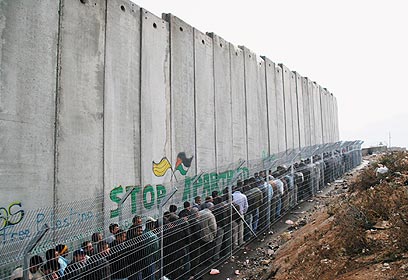
"The occupation breeds anger and hatred instead of understanding and acceptance. The anger is primarily directed at those who do nothing. Forty years of silence. It's easier to do nothing, maybe express an opinion to your friends than to join the ranks of those who struggle to change the fate of the two nations. It's a painful journey, and no one likes pain." (Shlomit Avni, Physicians for Human Rights. Photo: activestills.org)















